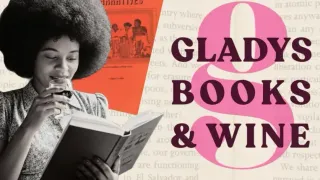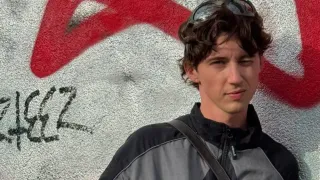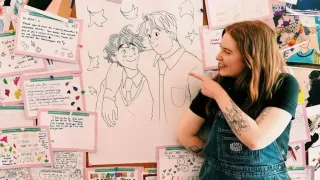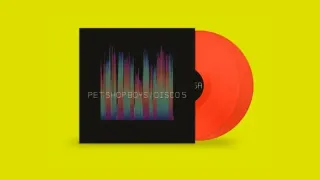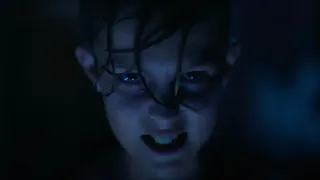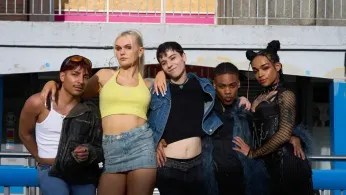
6 hours ago
BBC’s “What It Feels Like For A Girl” Is Raw, Real, and Revolutionary
READ TIME: 4 MIN.
The arrival of BBC Three’s original miniseries “What It Feels Like For A Girl” marks a watershed moment for LGBTQ+ representation on British television. Premiering in June 2025, the series is inspired by Paris Lees’ acclaimed memoir and centers on Byron, a queer teenager desperate to escape the confines of a working-class Nottingham town at the turn of the millennium. The show has quickly garnered attention for its raw, emotionally charged storytelling and nuanced depiction of queer youth navigating survival, identity, and the pursuit of joy amidst adversity .
“What It Feels Like For A Girl” is rooted in the lived experience of Paris Lees, a British journalist and transgender activist whose memoir has been lauded for its candor and riotous energy. The adaptation, developed for BBC Three, retains the memoir’s spirit by probing issues of gender identity, trauma, and self-discovery with honesty and humor . Byron, the central character played by Ellis Howard, is not simply a cipher for queer pain; instead, the show renders him as fully human, flawed, and often hilarious—a vital corrective to earlier, more stylized LGBTQ+ dramas that risked reducing queer lives to caricature.
The series’ setting in Nottingham’s club scene of the early 2000s offers both nostalgia and a rare glimpse into regional British queer culture outside of London. As Byron stumbles into the orbit of Lady Die, the East Midlands’ “premier podium-dancer-cum-hellraiser,” he finds himself adopted by an irreverent family of troublemakers and clubbers—a chosen family that embodies the resilience of queer youth . The production used authentic locations across Wales and England, including Cardiff, Newport, Bristol, and the Vale of Glamorgan, to ground the narrative in lived spaces familiar to many viewers .
“What It Feels Like For A Girl” is more than a coming-of-age story; it’s a meditation on survival in environments fraught with danger and uncertainty. The series is unflinching in its depiction of exploitation, particularly the vulnerability of young queer people navigating their identity in hostile or indifferent communities. It exposes how predators exploit confusion and shines a light on the emotional and psychological cost of such experiences, themes that remain underrepresented in mainstream media .
Equally, the show balances darkness with moments of joy, humor, and solidarity, celebrating the richness of queer friendship and community. The found family Byron discovers is depicted with depth and complexity, eschewing stereotypes in favor of authentic, lived-in performances by a diverse cast including Hannah Jones, Laquarn Lewis, and Paris Lees herself.
Critics and audiences have responded enthusiastically. The series holds an impressive 8.3/10 rating on IMDb, with reviewers praising its emotional honesty and groundbreaking depiction of queer experience. One critic noted, “It has that honest raw queer depiction like Queer As Folk back then but with a deeper sensitivity akin to the film Beautiful Things. It balances humour, coming of age drama and sexuality with perfection. The lead Ellis Howard is fantastic and so are the rest of the cast… It shows the flaws, doubts and struggle of a young queer character but in a funny and original way” .
Another reviewer highlighted the show’s courage in addressing the vulnerability and exploitation faced by questioning youth: “The show sheds light on experiences we rarely see onscreen—especially the vulnerability of young people who are confused, questioning, or struggling with gender identity or sexuality. It highlights how predators exploit that confusion, and it doesn’t shy away from the emotional and psychological turmoil that can follow” .
The production’s commitment to authentic representation extended to its casting, with Uni-versal Extras providing a wide range of supporting actors across the UK, reflecting the diversity of the communities depicted . Roles ranged from clubbers and ravers to prison guards and bingo staff, ensuring that the world of Byron and Lady Die felt expansive and lived-in. The casting of Paris Lees in a pivotal role further underscores the series’ dedication to centering trans voices both in front of and behind the camera.
For LGBTQ+ viewers, the series offers more than visibility—it provides validation, complexity, and a sense of shared experience. Unlike many earlier dramas that risked sensationalizing queer lives, “What It Feels Like For A Girl” refuses to shy away from pain while also refusing to define its characters solely by trauma. By weaving together humor, heartbreak, and resilience, the show invites audiences into a world where queer identity is multifaceted and deeply human .
Its success also signals a shift in mainstream media: the willingness of major broadcasters like BBC to invest in complex, regionally-rooted queer stories signals progress in representation and sets a precedent for future productions.
As “What It Feels Like For A Girl” continues to air and reach wider audiences through BBC iPlayer, its impact on British television and queer storytelling is likely to grow. The show’s ability to tackle difficult subjects with authenticity and wit—while centering the lived experiences of LGBTQ+ people—has already inspired calls for more programming that reflects the diversity and complexity of queer lives across the UK and beyond.
In an era where representation remains both contested and crucial, “What It Feels Like For A Girl” stands out as a model for how television can challenge, illuminate, and celebrate queer experience. For those seeking a drama that does not flinch from reality, yet finds hope and humor in the margins, the series is essential viewing.
